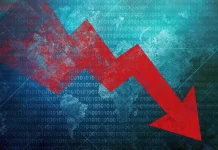
It’s hard enough for employees to save for retirement, without historic inflation stretching their wallets thin.
The continued economic strain caused by COVID has been exacerbated by the war in Ukraine and other economic stressors, causing prices to creep up. In March, the Consumer Price Index increased 8.5% from the previous year, according to the most recent data from the Bureau of Labor Statistics. The fluctuating prices on food, gas, real estate and other goods are hitting Americans hard — both in their day-to-day spending habits and in their goals for the future.
According to a survey from insurance firm Voya, 66% of Americans are concerned about the impact inflation will have on their ability to save for retirement, and 71% are feeling the effects of inflation on their ability to maintain their current lifestyle.
“Those that are nearing retirement, there is a significant concern of, Have I saved enough?” says Jeff Cimini, SVP or retirement product Management at Voya. “And then people 30 years from retirement are struggling to think about long-term investment goals, unless they’ve solved their short-term concerns.”
Inflation impacts a person’s purchasing power, Cimini says, and therefore their mindset around their money right now. For those nearing retirement, they may need to rethink how far their money will go. For those with many years — or even decades — to go, inflation may be yet another concern that’s delaying their long-term picture.
“COVID exposed the lack of preparedness for emergency savings and those needs,” Cimini says. “If I do not feel financially secure, it’s very hard to focus on long-term goals, regardless of inflation.”
Young people in particular are more focused on short-term financial management, like building an emergency fund or paying off debt, and can lose out on the benefits of compound interest long-term investing can generate. Having a diverse portfolio, and investing early, are two ways to ‘inflation-proof’ your finances, Cimini says.
“Starting your investments early and taking advantage of compounding is the best way to fight the types of things you can’t control, like inflation,” Cimini says. “If they do have the opportunity to do that in a retirement plan offered by their employer, they really should do everything they can to take advantage of that, because they’re going to get the benefit of years of compounding.”
While each person’s financial situation is unique, learning to prioritize financial goals is an important step toward reaching a balance, Cimini says. Voya’s My Health and Wealth program offers employees suggestions based on their circumstances for what to prioritize and the benefits that would be most valuable to them.
“Plan sponsors and companies have done a fantastic job of expanding the benefit programs and financial wellness programs to support their employees,” Cimini says. “But then how as an employee do I look at these options and select the right one for me? There’s a lot of education that can be provided to employees that don’t have a background in these complex financial questions.”
Without that integration and understanding, employees are increasingly reacting to these short-term emergencies and savings blips, rather than feeling confident in their ability to ride it out, Cimini says. The Voya survey found that 43% have used finances they set aside for retirement to deal with inflation-related expenses.
“Employees have the building blocks, but they have to use them in the right way,” Cimini says. “If they’ve done the right things early on, they’re in a better position for having the type of retirement they’re expecting.”
























